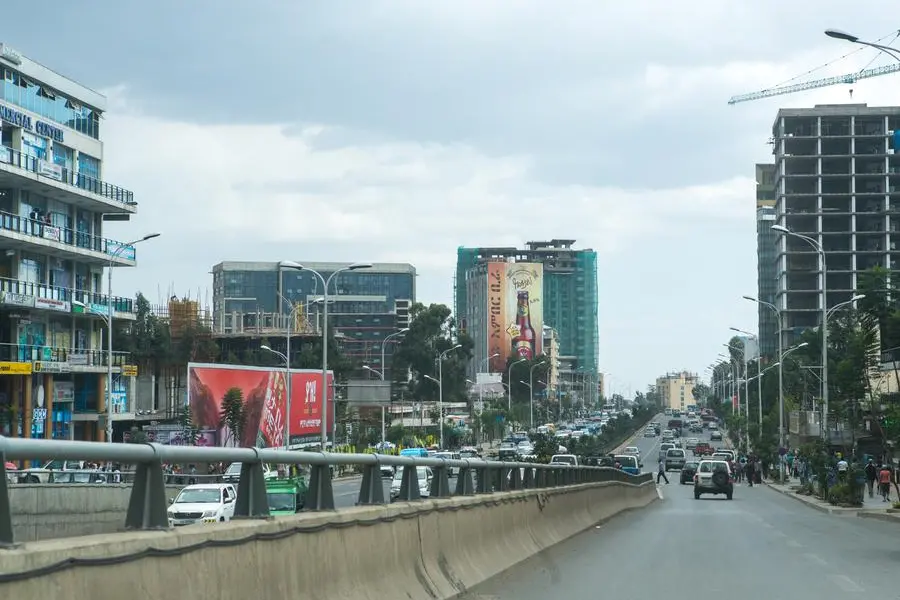PHOTO
Ethiopia’s central bank has set tough new rules for foreign banks seeking to enter the country as Prime Minister Abiy Ahmed’s administration cautiously opens up the financial sector to foreign investors after decades of state control.
New disclosures by the National Bank of Ethiopia (NBE) show that while rules have been tightened for foreigners, local lenders have it easy, a move aimed at encouraging more investment by Ethiopians in the banking sector.
The new regulations relate to minimum capital, licensing fees, board composition and shareholding of foreign banks. They were formulated after Parliament approved a law in December 2024 allowing foreign banks to operate in Africa’s second-most populous country, as part of government’s efforts to attract more overseas investments.
The “Requirements for Licensing and Renewal of Banking Business and Representative Office Directive No. SBB/XX/2025” replace regulations that have been in force since March 2013.
Rules for foreign banksUnder the new rule, foreign banks will have to fork out minimum paid-up capital of five billion Birr ($38.13 million) and all issued shares must be subscribed with at least 25 percent fully paid in cash.
In the case of a foreign bank subsidiary, the subscribed capital must be fully paid up in cash (in an acceptable foreign currency) in advance and the minimum paid-up capital has to be remitted and deposited in a blocked bank account in a domestic lender and in the name of the bank to be established.
A blocked bank account is one from which funds cannot be withdrawn without the specific consent.
The rules provide that a strategic investor may not directly hold more than 40 percent of a bank’s total subscribed shares in an existing or a new domestic lender, while the combined shareholding of foreign nationals and foreign-owned Ethiopian organisations in a bank should be limited to 49 percent of the total subscribed shares.
In the case of a foreign bank subsidiary, at least one third of the total number of directors should be Ethiopian nationals.
A foreign bank applying for a business licence for a subsidiary or a foreign bank branch will have to pay an investigation fee of Birr 200,000 ($1,525.4) and a licence fee of Birr 600,000 ($4,576.21).
In addition, a foreign bank subsidiary or foreign bank branch applying for renewal of its business licence must pay a renewal fee of Birr 400,000 ($3,050).
Local bank rulesOn the other hand, a domestic bank applying for a new banking licence will pay an investigation fee of Birr 100,000 ($762.70) and a licence fee of Birr 300,000 ($2,288).
A renewal of a business licence will cost Birr 200,000 ($1,525.4).
Currently, Ethiopian nationals applying for banking licences pay an investigation fee of Birr 3,000 ($22.8) and a licence fee of Birr 6,000 ($45.7), while renewing the business licence costs Birr 6,000.
A foreign bank applying for renewal of its representative office licence must provide evidence of cash deposit of at least Birr 100,000 ($762.70), covering the annual expenditure of the representative office. The representative office licence is renewable annually between July 1 and September 30.
Kenyan lenders KCB and Equity, which have representative offices in Ethiopia, have been waiting to set up in Addis Ababa.
Ethiopia is undertaking massive economic reforms to liberalise critical markets, including the financial sector, in a bid to attract foreign investment to an economy that is currently grappling with a prolonged foreign currency shortage.
Read: Ethiopia central bank releases $175m to forestall forex crisisThe country has been gradually opening up its tightly controlled economy, since Dr Abiy took over in 2018.
In June 2024, his Cabinet approved a draft of the law allowing foreign banks to establish subsidiaries, open branches or representative offices, and buy shares in local banks.
Ethiopia's banking sector is currently dominated by state-owned Commercial Bank of Ethiopia.
With a population of 128 million, Ethiopia has long been in the sights of foreign investors after being shut off for decades.
Kenya, Uganda core capitalIn Kenya, the minimum core capital for banks has long been Ksh1 billion ($7.7 million), but in December 2024, Parliament approved the Kenya’s Business Laws (Amendment) Act, which increased the minimum paid-up capital requirement in annual increments to Ksh3 billion ($23.2 million) by the end of 2025 and eventually Ksh10 billion ($77.5 million) by the end of 2029.
In 2022, the Bank of Uganda announced an increase in the minimum paid-up capital for licensed financial institutions, which was implemented gradually for 18 months to June 2024.
The minimum core capital for commercial banks increased six times to Ush150 billion ($41.14 million) from Ush25 billion ($6.9 million), while that of tier II credit institutions increased 25-fold to Ush25 billion ($6.8 million), from Ush1 billion ($274,276).
© Copyright 2022 Nation Media Group. All Rights Reserved. Provided by SyndiGate Media Inc. (Syndigate.info).





















